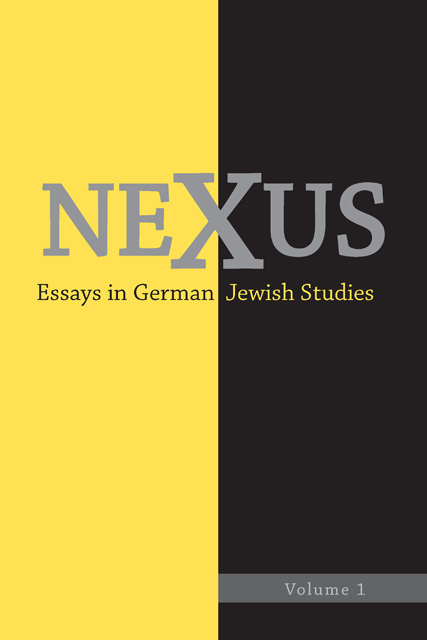New Subject Positions in Recent German-Jewish Film
Published online by Cambridge University Press: 10 February 2023
Summary
This essay examines recent works by Israeli and German filmmakers; interviews conducted by the Israeli psychologist, Dan Bar-On, with “children of the Third Reich”; and Bar-On’s later work with Israelis and Palestinians conducted in collaboration with Professor Sami Adwan on storytelling in the service of peace building. It asks a number of related questions: What does it mean to grow up as the traumatized children of victims and perpetrators, as children so exclusively defined as such that they are unable or unwilling to procreate? What assumptions do the offspring of survivors and perpetrators tend to make about each other? How do the films under consideration as well as the work of Bar-On and Adwan explore these assumptions, these often unconsciously transmitted, secretly harbored fears and fantasies, while at the same time seeking to undo and transform them?
We only spoke a language of hybrids and mongrels, between two grammars and lexicons where we both had to venture and were forever being caught out. We did not, then, have a language. We made one.
— Dan Gunn, Wool Gathering or How I Ended AnalysisIS THERE A LANGUAGE STILL TO BE MADE, a language that will link the children of Holocaust victims and those of the perpetrators? This is the question around which a number of recent works by Israeli and German filmmakers turn. Circling around such a delicate question, the films tend to move indirectly about it, touching lightly and obliquely upon it. Yet, the films seem also to spiral ineluctably toward this question, addressing it only at their very limits in their clumsily tacked-on endings and patently forced moments of resolution. Such moments of closure no doubt concede in their strained, contrived sense of harmony the very intractability of the issues they address, leaving to the end something that cannot quite be entered into, something with which the films make contact but cannot quite articulate, something for which there is as yet no language.
Yet, what if this language still to be made, this language that would link the children of Holocaust victims and perpetrators, were to be conceived less as a new idiom per se than as a mode of articulation structured like that of the unconscious, a perpetually foreign discourse of the Other whose articulation would always involve a certain dislocation or Entstellung of the mother tongue, of any and all mother tongues?
- Type
- Chapter
- Information
- Nexus 1Essays in German Jewish Studies, pp. 227 - 246Publisher: Boydell & BrewerPrint publication year: 2011



